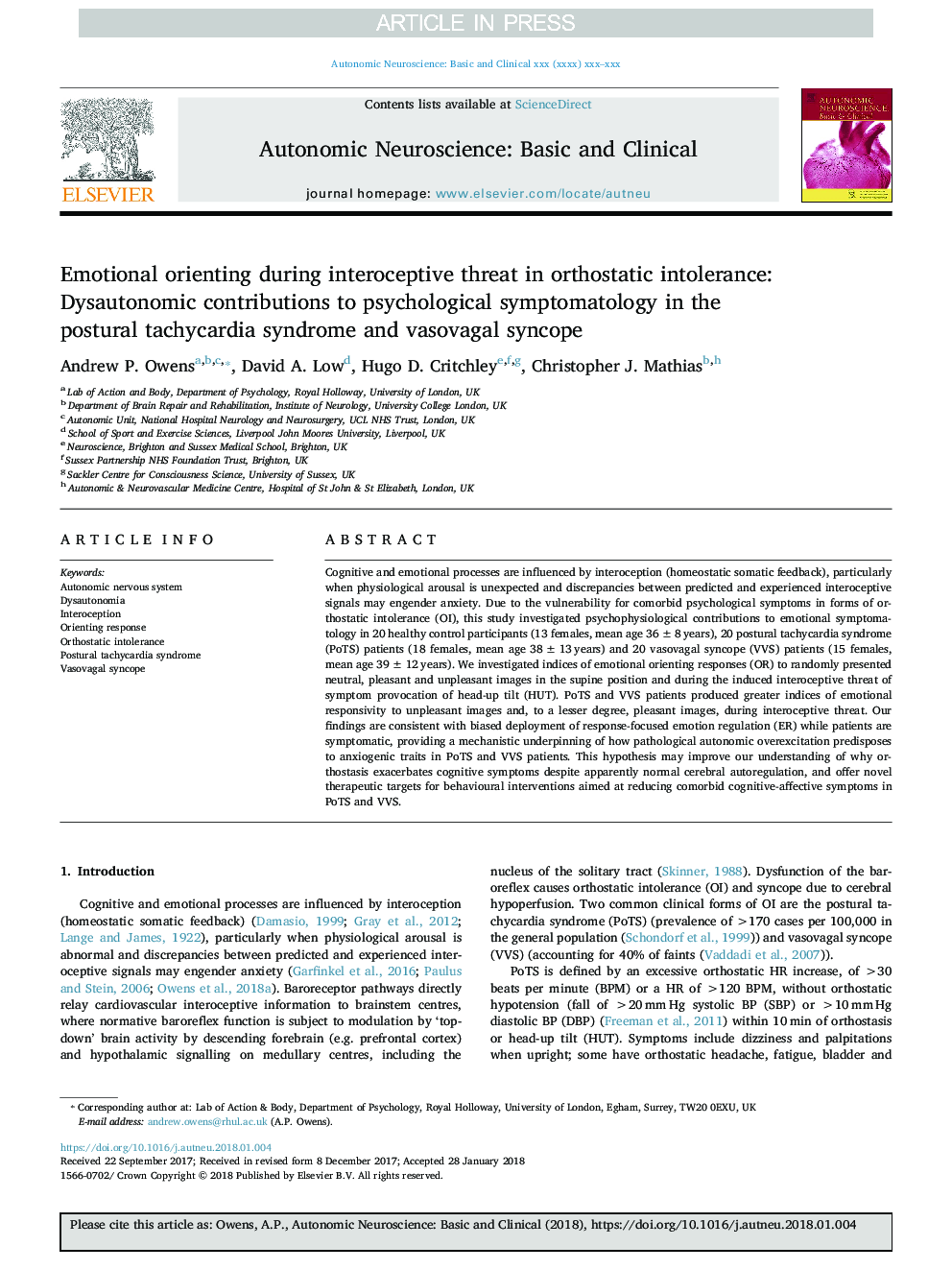| Article ID | Journal | Published Year | Pages | File Type |
|---|---|---|---|---|
| 8681025 | Autonomic Neuroscience | 2018 | 6 Pages |
Abstract
Cognitive and emotional processes are influenced by interoception (homeostatic somatic feedback), particularly when physiological arousal is unexpected and discrepancies between predicted and experienced interoceptive signals may engender anxiety. Due to the vulnerability for comorbid psychological symptoms in forms of orthostatic intolerance (OI), this study investigated psychophysiological contributions to emotional symptomatology in 20 healthy control participants (13 females, mean age 36â¯Â±â¯8â¯years), 20 postural tachycardia syndrome (PoTS) patients (18 females, mean age 38â¯Â±â¯13â¯years) and 20 vasovagal syncope (VVS) patients (15 females, mean age 39â¯Â±â¯12â¯years). We investigated indices of emotional orienting responses (OR) to randomly presented neutral, pleasant and unpleasant images in the supine position and during the induced interoceptive threat of symptom provocation of head-up tilt (HUT). PoTS and VVS patients produced greater indices of emotional responsivity to unpleasant images and, to a lesser degree, pleasant images, during interoceptive threat. Our findings are consistent with biased deployment of response-focused emotion regulation (ER) while patients are symptomatic, providing a mechanistic underpinning of how pathological autonomic overexcitation predisposes to anxiogenic traits in PoTS and VVS patients. This hypothesis may improve our understanding of why orthostasis exacerbates cognitive symptoms despite apparently normal cerebral autoregulation, and offer novel therapeutic targets for behavioural interventions aimed at reducing comorbid cognitive-affective symptoms in PoTS and VVS.
Keywords
Related Topics
Life Sciences
Neuroscience
Cellular and Molecular Neuroscience
Authors
Andrew P. Owens, David A. Low, Hugo D. Critchley, Christopher J. Mathias,
